Bhagat Singh Essay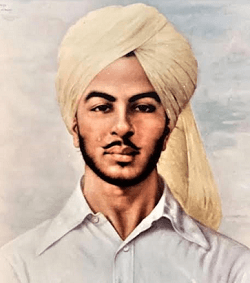
23rd March 1931, more than 90 years have passed since the day when Raj guru, Sukhdev, and Bhagat Singh laid their lives for the country. Bhagat Singh was hanged for the mistaken murder of a junior British police officer John Saunders; it was a retaliation to the death of an Indian nationalist Lala Lajpat Rai. He was convicted of the murder and was hanged on 23rd March. After his hanging, he became very popular in Indian households. Jawahar Laal Nehru wrote about him- "He didn't become popular because of his violent activities; he became popular because of his love towards the nation and what he did for the honor of Lala Lajpat Rai". Sometimes he is also referred to as "Shaheed-e-Azam". His acts were forgotten within a span of months, but the symbol remained. He is an idol to many Indians. Many of his associates faced violent deaths due to their daring acts but not everyone was lionized as Bhagat Singh. Even though he was an atheist and used to follow communalism, many right-wingers consider him their idol. In today's time, he has admirers in both political spectrums the communists and right-wingers. Today, everyone in India knows about this legend. So, in today's post, we shall be discussing the life of Bhagat Singh to know more about the legend. Early Life:Bhagat Singh was born on 28th September 1907 in Banga, which is currently in Pakistan. His father's name was Kishan Singh Sandhu and His mother's name was Vidyavati. He had 6 siblings. His father and his uncle Ajit Singh took part in the Colonization bill and Ghadar movement. He has done his schooling at Dayanand Anglo-Vedic School situated in Lahore. He completed his graduation from the National College situated in Lahore in 1923. National College was founded in 1921 by Lala Lajpat Rai. It was in response to Mahatma Gandhi's non-cooperation movement. The motive for opening these schools and colleges was to shun schools and colleges subsidized by the British. Police were concerned about his influence over Indian youth. Police arrested him giving the pretext that he was involved in a bombing that took place in Lahore. Later they released him after five weeks on a surety of Rs 60,000. 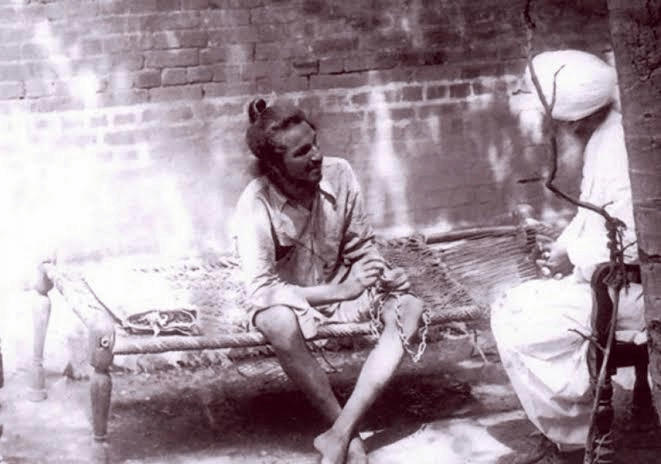
Intellectualist:Whenever we hear the name "Bhagat Singh", our mind automatically goes to words like weapons, and violence. You would be shocked to know that Bhagat Singh was considered an "aggressive intellectual of his time". His friends used to say that they never saw Bhagat Singh without a book, he always had a book in his hand. He also had good knowledge of British, European, American, and Russian Literature. He has read over 200 books before he was arrested and in the 2 years, he spent in jail he read about 300 books. Along with his reading skills, Bhagat was also known for his writings, His articles were often used to get published in magazines like Kirti, Akali, Veer Arjun, and Pratap. Above all of these, he was a Socialist Revolutionary. Now let's discuss his ideas and ideologies. Socialist Revolutionary: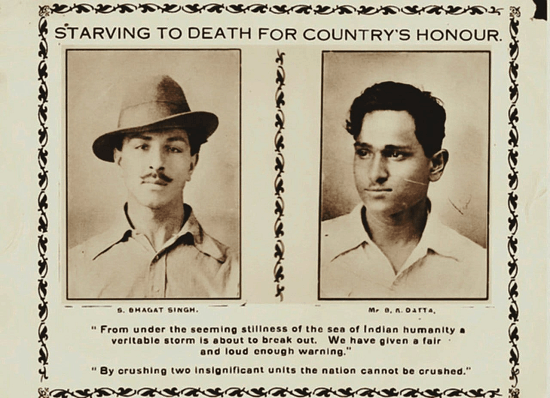
Bhagat Singh was deeply influenced by the German philosopher Karl Marx, Vladimir Lenin, and Socialist Ideologies. He wanted to work for the lower class of people such as farmers, laborers, and factory workers. It pained him how society treated them. He wanted to fight for them. For him, social justice was most important. In February 1931 Bhagat Singh said," Political Revolution the Indispensable pre-condition, But the ultimate objective is Socialist Revolution". His party's name was Hindustan Republican Association which was later changed to the "Hindustan Socialist Republican Association" by Chandra Shekhar Azad and Bhagat Singh. He came with slogans like "Inquilab Zindabaad", "Down with Imperialism", "Workers of the world unite", and "Long Live Socialist Revolution". He also used to follow Marxism. What is Marxism?It is a theory given by "Karl Marx" which is related to things like social, political, and economic. It focuses on the struggle between capitalists and the working class. Marxism favors communalism and socialism over capitalism. 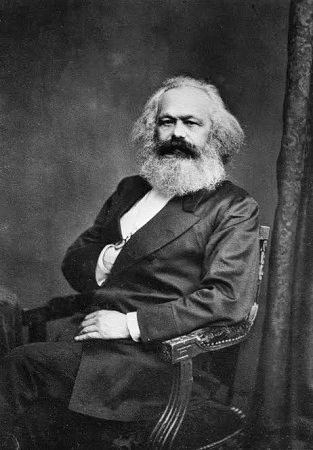
Let's have a look at Bhagat Singh's religious views. Bhagat Singh admiration for books:Bhagat Singh truly admired reading books, he read many books during his minuscule life. Books were like great companions for him even in jail. Britishers captured him and sentenced him to jail, but they could never capture his thoughts. He was a maverick in jail and thought like a free soul. He read many books related to the Italian, Russian and French revolutions. He was so engrossed in reading books. Today's youth need to inculcate this habit of Bhagat Singh and read more books and gain supreme knowledge like him. Unknown Facts about Bhagat Singh
Bhagat Singh in present India:Although Bhagat Singh plays a crucial role in India's road to freedom, he is not recognized in India as much as he should be. Bhagat Singh's benefaction in making India free is far more than we all can imagine. He shook the British Empire with his immense dedication to our motherland. We would have known a lot about Bhagat Singh if the Britishers didn't burn his autobiography, it was a vital source to know him more precisely for the whole youth. Bhagat Singh's protest in Prison:Bhagat Singh fought the British from jail against the inhuman conditions for Indian prisoners. India prisoners were totally kept away from the outside world. They were not given any newspapers or books. Bhagat Singh revolted against the Britishers by fasting for 116 days inside the jail. Atheism:Bhagat Singh was a strong believer in secularism and atheism. He was a believer in the "French view of Secularism" which says Religion must be a personal affair and it should play no role in the working of the state. If an individual wants to know why Bhagat Singh was an atheist, he should refer to the article "Why I am an atheist". He wrote this article to explain why he was an atheist. He used to say if there is God, He wouldn't let his children go through all this suffering and pain. Revolutionary Activities:1) Killing of John SaundersSimon Commission was set up in 1928, it was to know about the political situation In India. Many Indian parties boycotted the commission, boycotting was due to the fact, that no Indian was given membership in Simon's commission. A march was led against this commission by Lala Lajpat Rai, when it visited Lahore on 30 October 1928. Police failed to disperse the large crowd which resulted in violence, to control the crowd police had to Lathi Charge, Rai was badly injured due to the Lathi Charge. He died of a heart attack on 17 November 1928. Doctors said that he died because of his injuries, but the British denied any role in Rai's Death. Bhagat Singh was a prominent member of the Hindustan Republic Socialist Association (HSRA). HSRA vowed to avenge the death of Lala Lajpat Rai. John P Saunders was an assistant superintendent of Police, he was mistaken for James A Scott by Bhagat Singh. It was a mistaken killing. It was condemned by Mahatma Gandhi. 2) Killing of Chanan SinghAfter killing John Saunders group was escaping through the D.A.V college entrance, Chanan Singh was a police constable who was chasing them, he was shot dead by Chandra Shekhar Azad. Police blocked all the entrances to the city to search for them. 3) Escape from LahoreBhagat Singh escaped dressed in western attire, he was carrying Devi's child. They passed as a young couple, and Sukhdev acted as their servant. Singh managed to hide his identity while buying tickets, he bought 3 tickets to Cawnpore (now Kanpur). They left for Lucknow, and Raj guru left separately to Benares, while Devi and Singh went to Howrah, everyone returned to Lahore after a few days except for Bhagat Singh. 4) Delhi Assembly Bombing and ArrestValliant was a French anarchist, he bombed the chamber of deputies in Paris, Bhagat Singh influenced by this event planned to bomb the Central Legislative Assembly. It was to protest against the Public Safety Bill and the Trade Dispute Act which were rejected by the assembly. Initially, HSRA was against his plan, because they knew he would be arrested after this which will eventually lead to his execution. However, they became aware that Singh was the perfect candidate for this because of his influence over youth. On 8th April 1929, Batukeshwar Dutt and Bhagat Singh threw 2 bombs at the central legislative assembly. The bombs were designed to cause no harm to anyone, but few members of the assembly were injured. Initially, the plan was to cause smoke in the assembly so that Singh and batukeshwarDuttt could escape, but they stayed there shouting "Inquilab zindabad". They were eventually arrested and then they were moved through a series of jails in Delhi. 5) Assembly Case TrialsThese trials happened due to the bombing of the central assembly in Delhi. As we all know Gandhi used to preach about non-violence, so he didn't like what Bhagat Singh and his associates did and he strongly opposed them. Bhagat Singh and Dutt were getting criticism whole of India, to justify themselves and to make people believe that they didn't want to kill anyone, they gave the statement "We hold human life sacred beyond words. We are neither perpetrators of dastardly outrages ... nor are we 'lunatics' as the Tribune of Lahore and some others would have it believed ... Force when aggressively applied is 'violence' and is, therefore, morally unjustifiable, but when it is used in the furtherance of a legitimate cause, it has its moral justification." June was the month when the trial was started, as Bhagat Singh himself was a lawyer he defended himself while Dutt was defended by Asaf Ali. They were sentenced to life imprisonment for: "causing explosions that would lead to life endangerment, and it was unlawful and malicious." There were many confusions in the testimonies, the most confusing part was the automatic gun that Bhagat Singh was carrying when he was arrested, few witnesses said that he shot two to three shots at the police sergeant while the man who arrested him said that the gun was facing down, and he was just playing with the gun. Due to these findings Singh, Sukhdev, and Rajguru were given a life sentences. 6) Arrest of AssociatesHSRA was growing rapidly, they also set up a bomb factory in Lahore and Saharanpur in 1929, which was later discovered by the police, which led to the arrest of other members of HSRA including Sukhdev. After this Saharanpur, the factory was again raided by the police, and police were able to connect the three dots of Saunder's murder which were Saunder's murder, the Assembly bombing, and the manufacture of bombs. Due to these findings, Singh, Sukhdev, Raj guru, and 21 others were charged with Saunders's murder. This led to the hunger strike in Lahore Jail. 7) Hunger Strike and Lahore conspiracy case.Singh was again arrested due to the killings of Chanan Singh and Saunders. His life imprisonment was kept on hold until the Saunders murder case was solved. Few of his associates like Hans Raj Vohra and Jai Gopal were impostors, they gave statements against him. He was shifted to Central Jail Mianwali from the Delhi Jail, where he witnessed that Indians were being discriminated against the European prisoners. He considered himself and his other associates political prisoners. When he was in Delhi Jail, the quality of food that he used to get was much better than the food provided at Mianwali. He was very upset when he saw that he was treated as a common criminal, so he convinced other self-proclaimed political prisoners to do a hunger strike. Their demands were very minimal, if the Britishers wanted they would have easily fulfilled their needs. They demanded good quality food, clothing, toiletries, and other hygienic necessities. They also demanded access to books and daily newspapers. Demands also included that they should not be forced to do manual work or to do things that would hurt their Dignity. Faces of Indian politics Jawahar Laal Nehru and Mohammed Ali Jinnah supported the strikers. Governments tried their best to break the strike. They placed different food items in jail to test the patience of prisoners. Instead of putting water in water pitchers, they put milk so either they break their strike or remain thirsty, but it didn't work and the strike continued. British did their best, force-feeding was also attempted but prisoners resisted. Lord Irwin was the Indian viceroy, he was forced to cut short his Shimla vacation. He visited the jail and had discussions with Jail authorities. As the strike was getting popular nationwide, Britishers had to do something so they decided to advance the Saunders murder case. Bhagat Singh was still on strike when he was brought to the court, due to a loss of weight he couldn't walk, and he was carried on a stretcher. The government refused to recognize them as political prisoners. They believed that if someone broke the law it was a personal act not a political one and they were to be treated as common criminals. 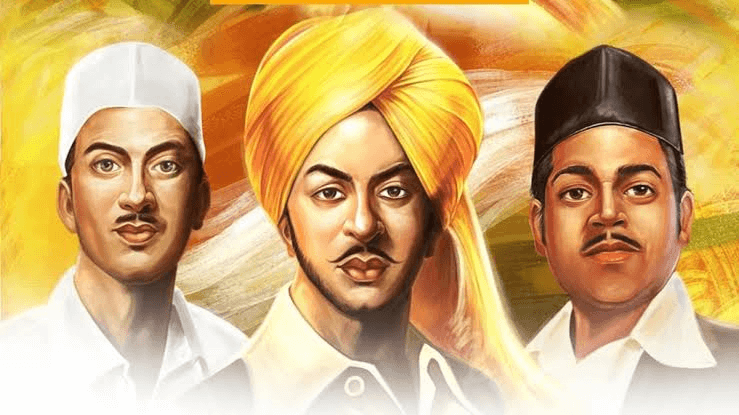
Execution:Bhagat Singh, Rajguru, and Sukhdev were sentenced to death in the Lahore conspiracy case. Bhagat Singh did not beg for forgiveness instead he wanted to be executed by a bullet like a true revolutionary. He believed that execution by hanging would be an insult for a revolutionary like him. At first, they were supposed to be hanged on 24th March 1931, but the execution was preponed by 11 hours and they were hanged on 23rd March 1931 at 7:30 PM in the Lahore jail. 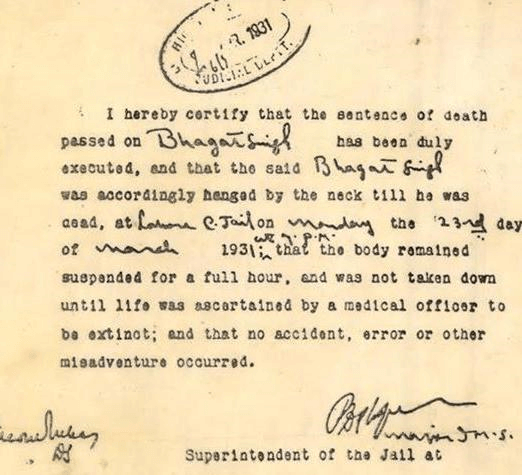
Bhagat Singh Legacy and memorials:
Conclusion:Bhagat Singh was one of the phenomenal and luminary freedom fighters. Today's youth can learn a lot from his ingenuity personality. To pay tribute to the legend, we should read his ideologies and follow good pieces of them to serve our motherland. Let's end this article by quoting one of the famous slogans "It is easy to kill individuals but you cannot kill the ideas. Great empires crumbled, while the ideas survived."
Next TopicRabindranath Tagore Essay
|
 For Videos Join Our Youtube Channel: Join Now
For Videos Join Our Youtube Channel: Join Now
Feedback
- Send your Feedback to [email protected]
Help Others, Please Share










